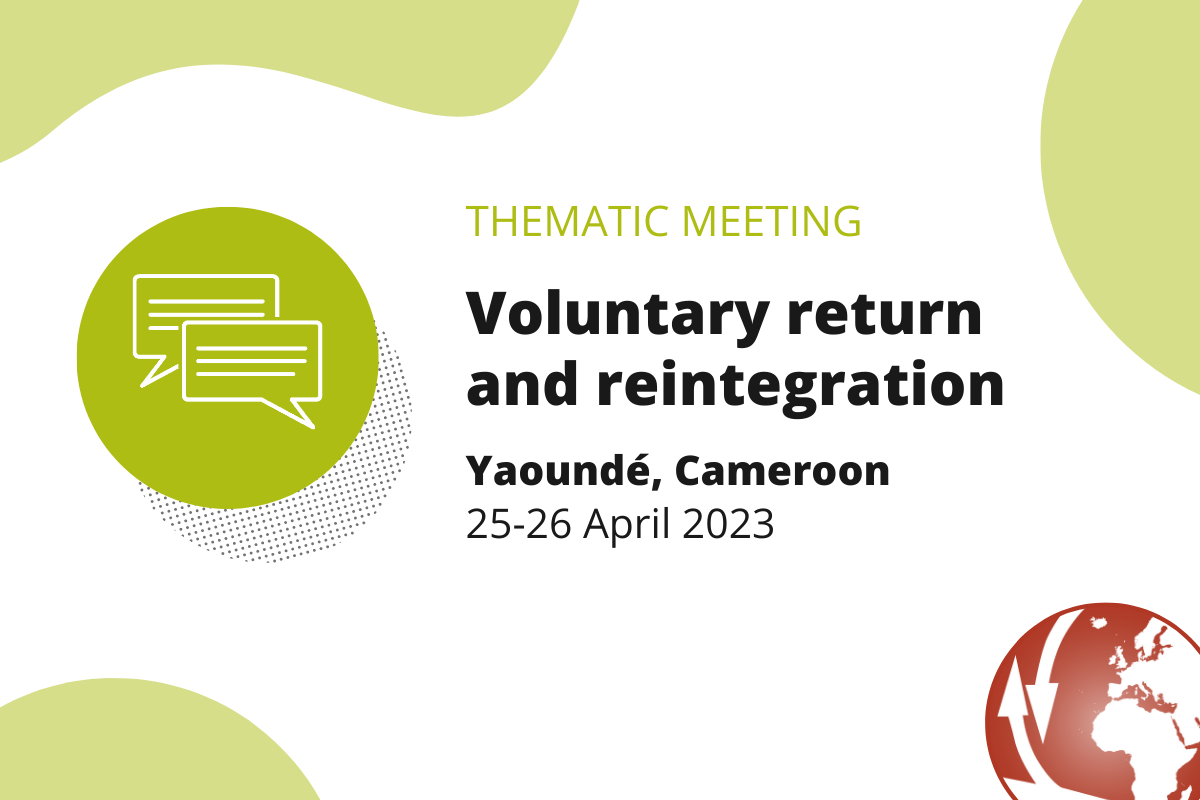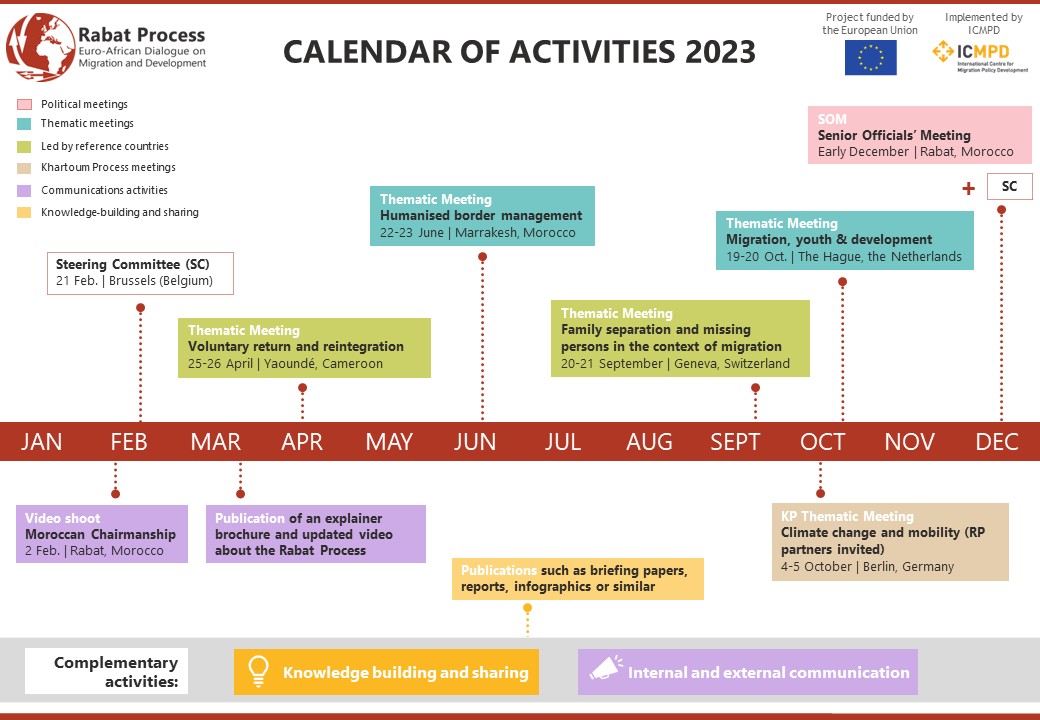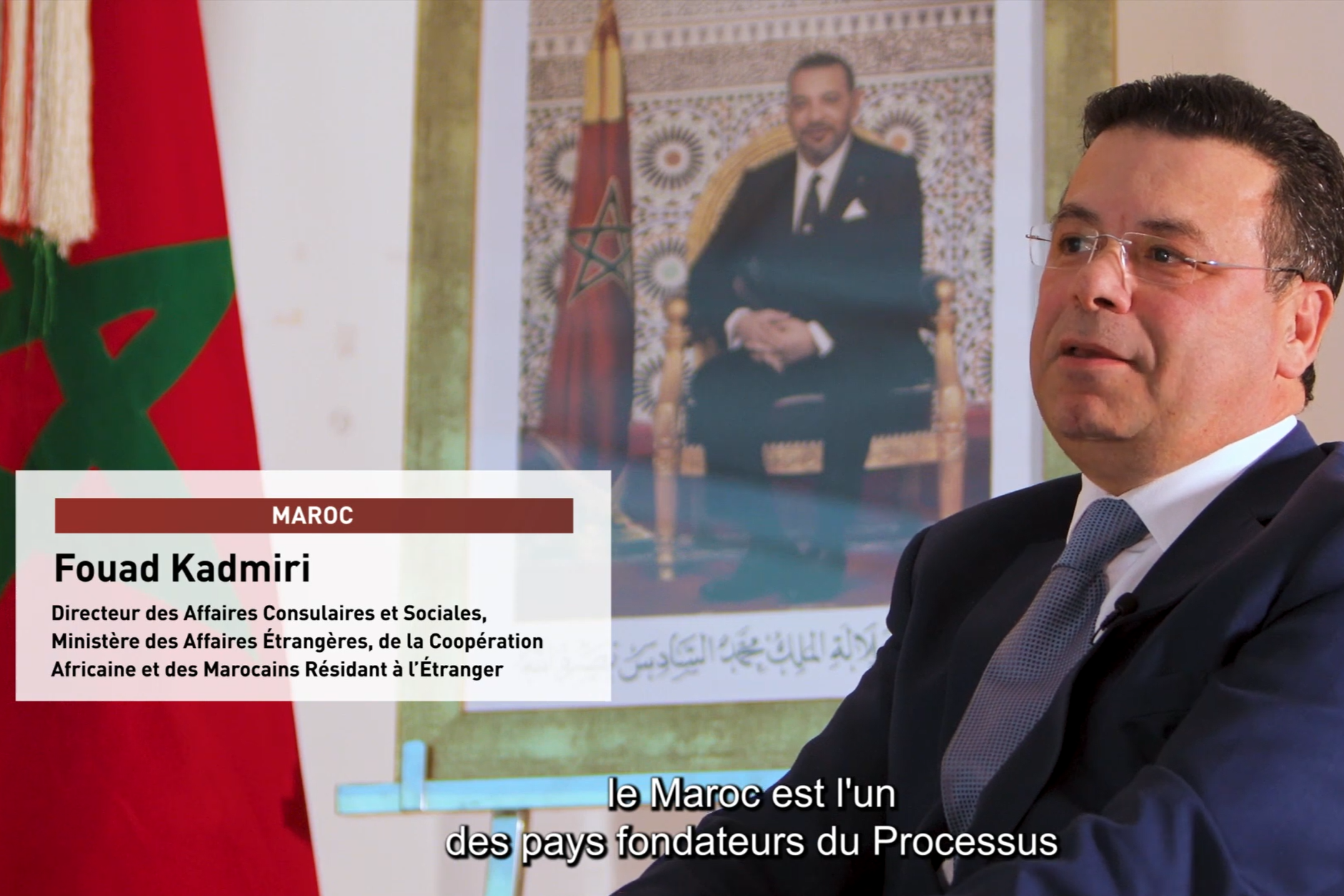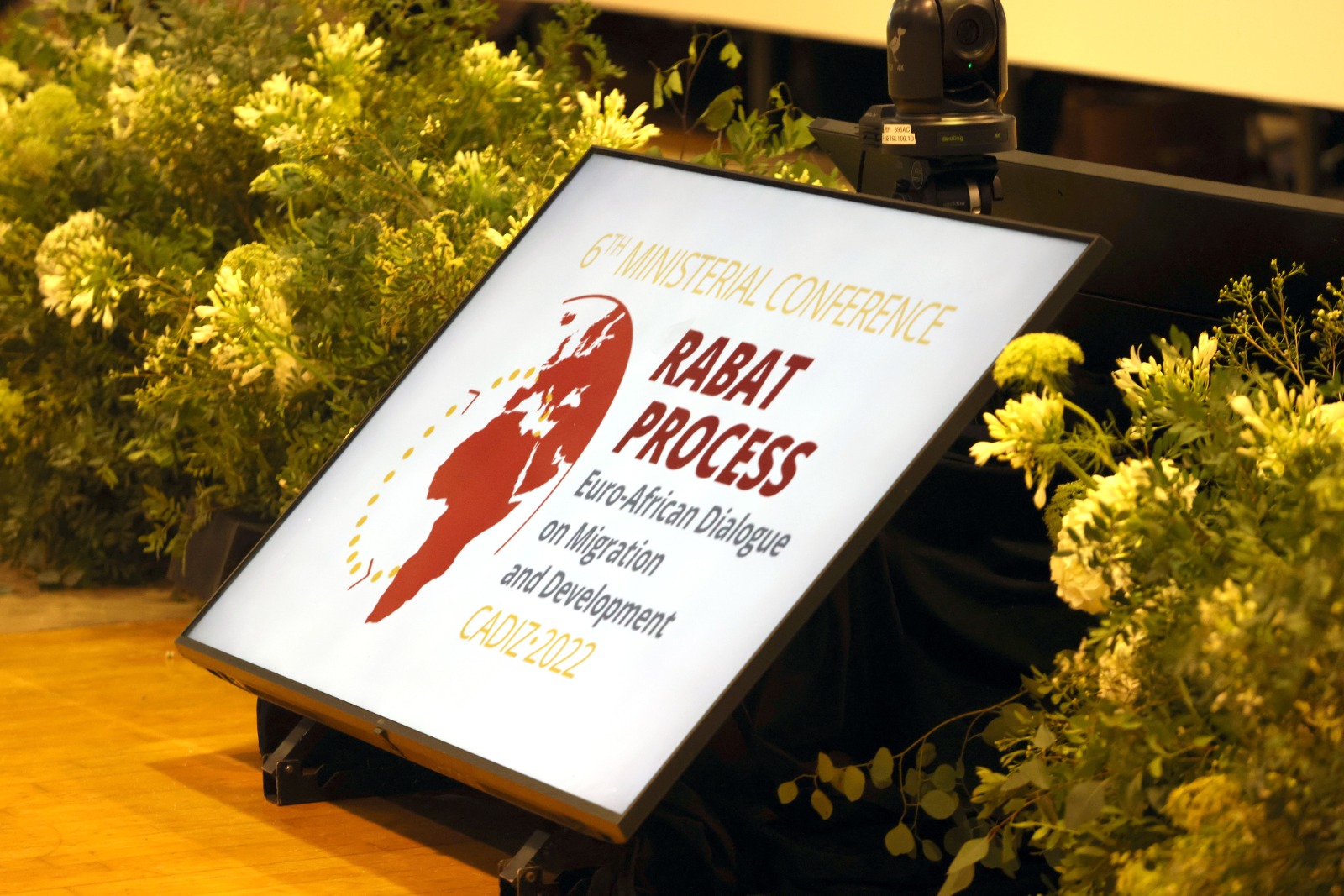The first thematic meeting organised by the Rabat Process this year will take place on 25-26 April 2023 in Yaoundé, Cameroon, and will focus on issues linked with voluntary return and reintegration. In four panels, participants from partner countries and organisations will look at different aspects of this topic. The upcoming thematic meeting is also the first one to take place in the framework of the recently adopted Cadiz Action Plan which guides the Rabat Process for the period of 2022-2027. It is co-chaired by Cameroon and Belgium - Cameroon being reference country for Area 5 of the Cadiz Action Plan.
Background of the meeting
Voluntary return and reintegration are at the heart of Objective 10 of the Cadiz Action Plan, which proposes that Dialogue partners work together to “encourage programmes aimed at ensuring safe return, including from transit countries, and the sustainable reintegration of migrants, with respect for their human rights and dignity.” Specifically, the thematic meeting is part of its action 29, aiming to strengthen voluntary return assistance programs and promote actions to build capacity for sustainable reintegration, while ensuring that returning migrants are accompanied and included in development policies and programmes at the local level.
The meeting will build on the work carried out in 2021, when France and Cameroon co-chaired a webinar on the subject as an alternative to the thematic workshop that had been planned to take place in Yaoundé in March 2020 and had to be postponed due to the COVID-19 pandemic. The webinar focused exclusively on the specific success factors of voluntary return and reintegration programmes and was the first-ever activity of the Rabat Process that was open to all interested participants, including policy-makers, practitioners and researchers, in addition to the traditional audience of the Rabat Process.
Four panels over two days: good practices, experiences and recommendations
The upcoming meeting will be an occasion for participants to exchange good practices, experiences and recommendations. It should enable them to become familiar with the main stakeholders working on the issue of voluntary return and reintegration and their respective approaches. One of the aims of the meeting is also to connect the actors in charge of return and reintegration with the actors in charge of development and migrant protection issues.
The four panels, which will take place over two days, have the following objectives:
- Discuss the new perspectives on return included in the EU strategy on voluntary return and reintegration and in the African continental approach;
- Identify a common body of good practice between European and African countries on the conditions for successful voluntary return and reintegration programmes, enabling the development and strengthening of these initiatives;
- To raise awareness on the importance of strengthening the links/synergies between reintegration and local and national development programmes;
- To inform on the need to strengthen the protection of migrants in all phases of voluntary return and reintegration.






